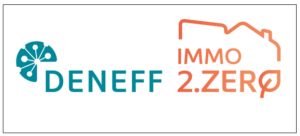Environmental, Social & Governance
With the "Fit for 55" legislative package, the European Commission has paved the way for combating climate change and its dramatic consequences. The aim of the legislative package is to reduce greenhouse gas emissions in the European Union by at least 55% by 2030 compared to 1990 levels and to make Europe climate-neutral by 2050.
As the building sector accounts for around 40% of energy consumption, a large part of EU regulation consequently affects the real estate industry - our very own branch. Naturally, much of the regulation relevant to the real estate industry deals with environmental sustainability aspects. "Social" and "Governance" (still) have a rather minor role to play in the real estate industry.Environmental“). „Social“ und „Governance“ spielen für den Immobiliensektor (noch) eine eher untergeordnete Rolle.
The shift in the building industry towards sustainability affects all phases of a property's life cycle - whether in the planning phase of a project development, the drafting of a lease or in the purchase due diligence process. ESG criteria therefore now have a significant influence on investor decisions. Our dedicated ESG team of lawyers therefore supports our clients in the integration and implementation of ESG regulations with tailor-made solutions, in particular on the following topics:
Our dedicated ESG team of lawyers therefore supports our clients in the integration and implementation of ESG regulations with tailor-made solutions, in particular on the following topics:
- Green Lease: We advise on all issues relating to sustainable commercial and residential leases - from the creation and implementation of basic green lease solutions to the development of individual concepts with complex user profiles. We have observed a strong increase in the sensitivity of both parties to the lease agreement with regard to this topic and have successfully negotiated green lease clauses in numerous occasions on both the landlord and tenant side.
- Asset Management: Asset management is a particular focus of ESG regulation. We support our clients in day-to-day practical issues such as the adaptation of operating cost catalogs, legal issues relating to the cost allocation of various (construction) measures (e.g. in connection with smart metering or the German Building Energy Act - GEG) and the integration of ESG aspects in property management and facility management contracts.
- Green Buildings: ESG criteria are taking a key role in both project planning and the refurbishment of properties, e.g. in the achievement of sustainability certificates or the installation of photovoltaic systems and e-charging infrastructure. We advise on the precise mapping in construction contracts and project planning as well as on the interfaces regarding to lease agreements in order to be in a sound position at the later exit.
- E-mobility / operator models: (PV systems, e-charging stations): Federal laws such as the Building Electromobility Infrastructure Act (GEIG) or state-specific laws such as the Hamburg Climate Protection Strengthening Act or the Hamburg Climate Protection Act (HmbKliSchG) have recently led to a large number of requirements for building owners (e.g. PV system obligation; number of required empty conduits for the expansion of the charging and cable infrastructure for e-mobility). Commercially attractive operator models in this regard - including from a tax perspective - must take this into account and need to reflect these requirements adequately. We have gained a great deal of experience in negotiating corresponding licensing and lease agreements and advise clients accordingly.
- Transactions (ESG in the LDD): Properties checked for ESG criteria achieve higher purchase prices and are becoming increasingly important for financing banks, especially when it comes to purchasing for an Art. 8- or Art. 9- fund within the meaning of the Sustainable Finance Disclosure Regulation. As part of our legal due diligence reports, we offer different scopes of audit, which we can extend or specify at any time at the request of our clients.
- Transparency obligations: The SFDR (Sustainable Finance Disclosure Regulation) and the CSRD (Corporate Sustainability Reporting Directive) impose various transparency and reporting obligations on market participants and are relevant for Art. 8- and Art. 9- products, among others - but not only. We support our clients in making the necessary declarations, e.g. in pre-contractual information or the declaration on the principal adverse impacts on sustainability (PAI statement).
Als erste Kanzlei ist Jebens Mensching Mitglied der Praxisgruppe Immo2.Zero der DENEFF (Deutsche Unternehmensinitiative Energieeffizienz e.V.) – darauf sind wir stolz. In regelmäßigen Meetings tauschen wir uns mit Vertretern aus Politik und Wirtschaft aus, sodass wir neben den rechtlichen Rahmenbedingungen auch erwartbare Entwicklungen in unserer Beratungspraxis berücksichtigen können. Ab 2024 ist Dr. Marius Eckebrecht Co-Kapitän für das Practice Vessel „Markt & Regulatorik“.
Jebens Mensching implements its one-stop-one-shop approach in ESG consulting as well. Through close cooperation with our affiliated companies mensching plus Audit GmbH and mensching plus Steuerberatungsgesellschaft mbH, we include the perspective of auditors and tax consultants in our advice at the request of our clients.
